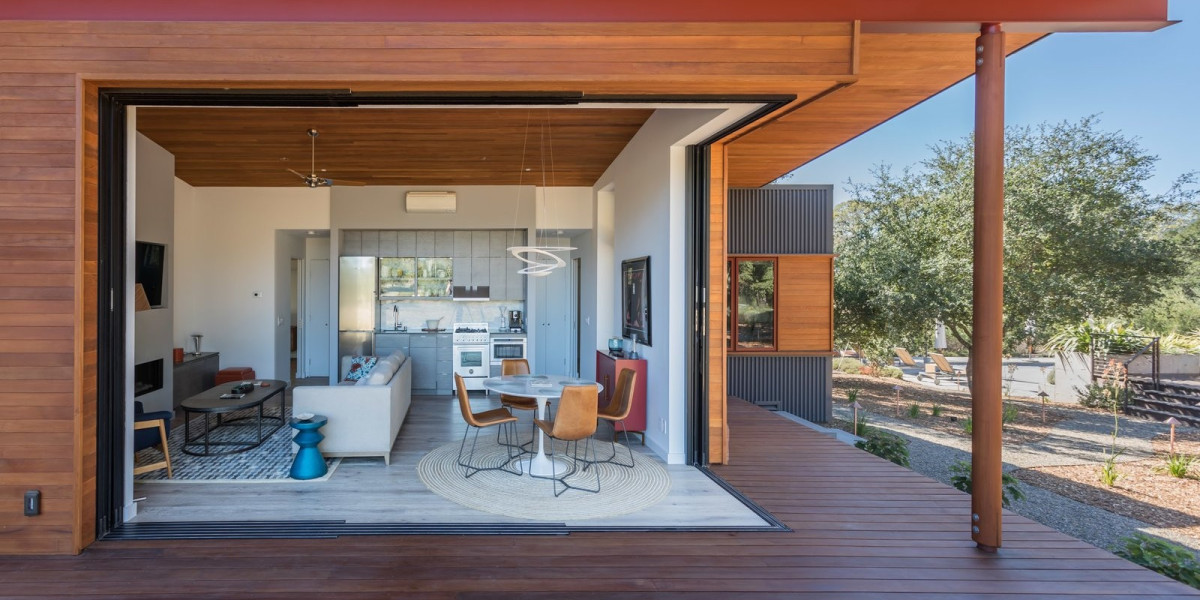The Brookline housing market presents a unique challenge for homeowners. You may love your neighborhood and your home, but your needs have evolved. Perhaps you need space for an aging parent who wants independence but also proximity. Maybe your adult children are struggling to find affordable housing nearby. Or, you're simply looking for a smart way to generate passive income from your property. At the same time, you want to maintain the character of your community and the value of your investment. There is a solution that addresses all these points, one that is gaining significant traction in town: the Accessory Dwelling Unit (ADU). For many Brookline residents, understanding the potential of an accessory dwelling unit Brookline allows is the first step toward unlocking new possibilities for their property and their family's future.
What exactly is an ADU in Brookline?
An Accessory Dwelling Unit is a secondary housing unit located on the same lot as a primary single-family home. Think of it as a self-contained apartment, with its own living, sleeping, cooking, and bathroom facilities. In Brookline, ADUs come in several forms, each with its own considerations:
- Interior ADU: Created by converting an existing part of the home, such as a basement or a large attic. This is often the most cost-effective option if the space is already partially finished.
- Attached ADU: An addition to the main house, like building out a new wing on the ground floor specifically for the unit.
- Detached ADU: A standalone structure, often built in the backyard. This is sometimes called a "granny flat" or a carriage house and offers the most privacy for both the homeowner and the occupant.
It's crucial to understand that an ADU is not the same as a simple room rental. It is a legal, permanent dwelling with its own address or unit number, and it must comply with specific Brookline zoning bylaws and building codes.
Navigating the Rules: Brookline's ADU Regulations
The Town of Brookline has embraced ADUs as a strategy to increase housing diversity and options, but the process is governed by a clear set of rules. Successfully navigating these regulations is the key to a smooth project.
Key Zoning Bylaw Requirements
Before you start sketching plans, you need to understand the foundational requirements set by the town's zoning bylaws. Some of the most critical include:
- Owner Occupancy: The owner of the property must occupy one of the units—either the main house or the ADU—as their primary residence. This is a non-negotiable condition.
- Size and Scale: The ADU cannot be larger than the lesser of 1,200 square feet or 40% of the gross floor area of the primary dwelling. This ensures the ADU remains "accessory" in scale and doesn't overwhelm the main house.
- Parking: In most cases, you are not required to provide an additional off-street parking space for the ADU. However, you cannot lose an existing compliant parking space to build the ADU. This is a significant policy designed to manage neighborhood parking impacts.
- Lot Size: Your lot must meet the minimum area requirement for the zoning district in which your property is located.
- Short-Term Rentals Prohibited: The ADU cannot be used as a short-term rental (e.g., Airbnb or VRBO). It is intended for long-term tenancy, typically defined as a lease of 30 days or more.
The Approval and Permitting Process
Adding an accessory dwelling unit Brookline MA property owners envision involves a formal process. You will likely need to apply for a Special Permit from the Brookline Zoning Board of Appeal. This process involves submitting detailed architectural plans and often includes a public hearing. Following zoning approval, you must obtain a full building permit from the Brookline Building Department. This ensures your construction plans meet all safety, electrical, plumbing, and energy codes. Working with an architect and builder experienced in Brookline's specific ADU process is highly recommended, as they can help you avoid common pitfalls and streamline your application.
The Practical Journey: From Concept to Completion
Turning the idea of an ADU into a livable space is a multi-stage project that requires careful planning and a reliable team.
Planning and Design Considerations
This initial phase is about making smart, forward-thinking choices.
- Defining Your Goal: Are you building for family, for rental income, or for future resale? Your goal will influence the design, features, and budget. A unit for an elderly parent might prioritize accessibility features like a zero-step shower and wider doorways.
- Budgeting Realistically: Costs can vary dramatically based on the type of ADU, the level of finish, and site conditions. A basement conversion will be less expensive than building a new detached structure. Remember to factor in not just construction costs, but also soft costs like architectural fees, permit fees, and potential landscaping.
- Assembling Your Team: You will need a skilled architect or designer to create compliant and functional plans, and a reputable general contractor who understands local building codes and has experience with similar projects.
The Construction Phase
Once permits are secured, construction can begin. This phase involves the same steps as any major home renovation or addition: site preparation, foundation work (for detached units), framing, installing mechanical systems (HVAC, plumbing, electrical), and interior finishing. A good contractor will manage this process efficiently, maintain clear communication, and ensure the site is safe and clean. Expect some disruption, especially for interior or attached ADUs, but a professional team will work to minimize the impact on your daily life.
The Tangible Benefits: Why Brookline Homeowners Are Choosing ADUs
The effort and investment in building an ADU can yield significant returns, both financial and personal.
Generating Passive Rental Income
In a high-cost rental market like Brookline, a legal ADU provides a substantial and steady stream of income. This can help homeowners offset their mortgage, cover property taxes, or save for retirement. Because ADUs are in high demand, they tend to have low vacancy rates, making them a reliable financial asset.
Supporting Multigenerational Living
One of the most powerful uses of an ADU is to keep families together while granting everyone their own space. It allows aging parents to age in place safely and independently, close to family support. It also provides a viable housing option for adult children saving for a down payment or finishing graduate school at a nearby university. This flexibility strengthens family bonds and provides peace of mind for everyone involved.
Increasing Property Value and Community Diversity
A well-built, permitted ADU adds significant value to your property by increasing its usable square footage and functionality. It makes your home more attractive to a wider range of future buyers. On a community level, ADUs help Brookline gently increase its housing stock without altering the neighborhood's character. They provide more diverse housing options that are integrated within existing residential areas, supporting a more inclusive and sustainable community.
For homeowners willing to navigate the process, an ADU is more than just an addition—it's a strategic and rewarding investment. It solves practical housing problems, creates financial opportunity, and enhances the long-term utility of your property. By understanding the regulations, planning carefully, and working with the right professionals, you can successfully add a valuable and versatile living space to your Brookline home.



